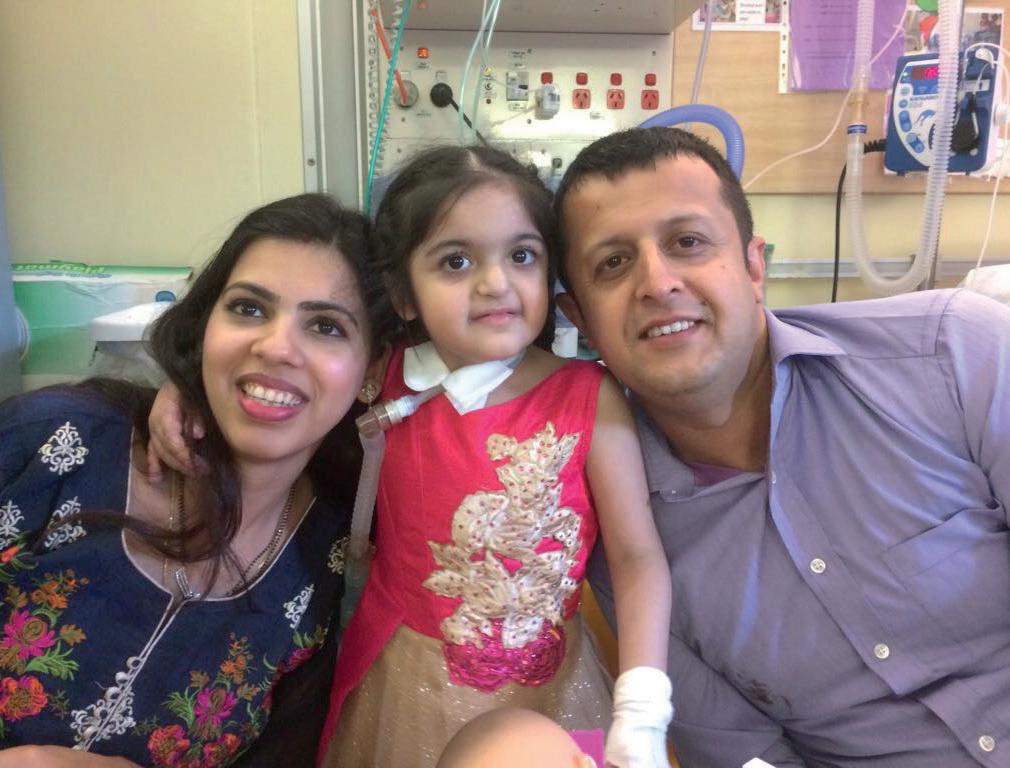
15 minute read
Waiting to exhale
from 2018-01 Sydney (2)
by Indian Link
Suffering from a rare disease, four-year-old Alisha Kapoor awaits a heart-lung transplant
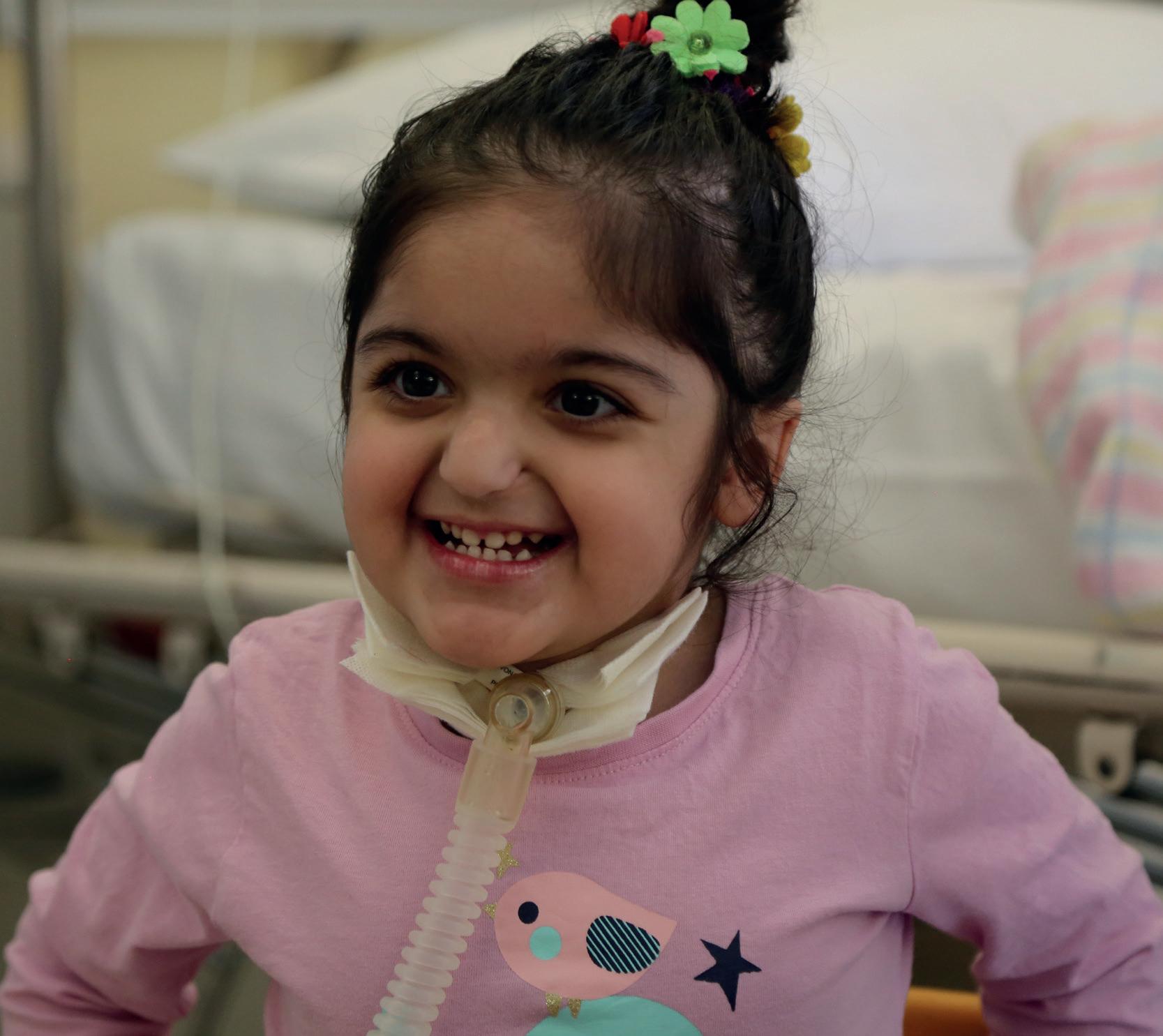
BY SARONI ROY
Alisha Kapoor is like a regular 4-year-old - chatty, active and full of imagination. She likes to laugh and is learning how to play the violin. But there’s one way in which she is different from a regular 4-year-old girl - she cannot breathe without ventilator support.
Born with a very rare lung disease called Surfactant protein C deficiency, Alisha is admitted to the hospital and becoming entirely dependent on a ventilator 24 hours a day to keep her lungs working and ultimately, to keep her alive. While Alisha is on the ventilator, her condition can be managed. However, due to her complex medical needs, it also means that she cannot go home. The only real cure for her is a heart-lung transplant, a gift that her parents are desperately hoping will come soon.
“Alisha was 6 months old when she fell very sick. We were based in China then. The doctors there could not diagnose the issue and therefore there was no treatment. We flew back to Sydney and went to the Children’s Hospital at
Alisha is so young and small, it’s too risky to separate the lungs from the heart and do the procedure. “The diameter, length and breadth of the trachea and the bronchi is very small so it’s very difficult to connect to new lungs to it. If Alisha had been older, we could’ve just replaced her lungs. So for her, it has to be a block transplant and she will also be the youngest heart-lung transplant recipient in Australia,” Dr Pandit says.
Alisha’s daily cost of bed, tertiary ICU care for 24x7 ventilation, nursing, as well as kindergarten is about $4000$5000 per day. But because it’s a public hospital, it is borne by the government of Australia under the Medicare system. Alisha cannot survive more than a few seconds if the ventilator is disconnected.
It is indeed a massive support system for Alisha’s parents, who are able to keep their daughter alive because the Australian government and medical facilities are interactive, intelligent and imaginative she is. She has directed the nurses to decorate her room. She has a wonderful sense of humour and is learning to play the violin. The occupational therapists and physiotherapists train her every day to keep her muscle strength intact. She keeps a tab on all the patients around her and all the nurses and doctors are her friends!”
Alisha has been on the transplant list since March last year and is now waiting until her family receives that phone call that she has received a heart and lung donor. When this happens, Alisha will be flown to The Alfred in Melbourne, where the life-saving surgery will take place. What makes Alisha particularly special though, is the fact that if she receives her transplant and her heart stays healthy, she will be able to gift her heart to save another child.
“In Alisha’s case, the donor has to be essentially of her height with the same supporting them to this extraordinary length. Without this support, they would have lost Alisha years ago. missing the vital protein needed to inflate her lungs. Without this protein, her lungs collapse immediately like a deflating balloon whenever she tries to breathe.
This little girl is hoping for a heart-lung transplant so that she can breathe without ventilator support, like any other child.
Alisha has spent almost all of her life living at The Children’s Hospital at Westmead, Sydney. She spent just six months at home after birth before being
Westmead straight from the airport,” recounts Alisha’s father Raj.
Dr Chetan Pandit, who took charge of Alisha’s case since she landed in the hospital, says, “We have had at least five similar patients of different age groups at our hospital and some of them died in the neo-natal phase. The only curative treatment for Alisha is that she needs new lungs.”
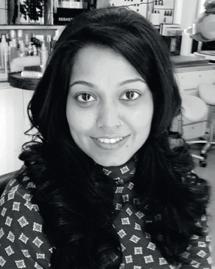
But even here, there’s a hitch. Because
“I had approached a few other hospitals in USA and UK where transplant facilities are available for such young children, but it was too expensive and risky for her to travel. It would have cost me roughly $4 million plus we would have had to move there for at least a year with no job while also dealing with visa issues,” says Raj.
Children’s Hospital at Westmead has been Alisha’s home for the last four years but that hasn’t suppressed her zest for life. Alisha is chatty and smart that can give you a complete account of her medical condition. Dr Pandit talks about Alisha’s daily life endearingly. “You have to see her to believe how active, blood group so that her/his heart and lungs can be harvested. Most common donor case is if someone dies in an accident. If all the organs are in good condition, they can be harvested,” Dr Pandit says.
He adds that anyone can be a donor. You can just go to the website (www. donatelife.gov.au) and sign up anytime. “There is no monetary transaction involved, it’s just that your family needs to know that you’re a donor and would like to donate your organs after your death,” says Dr Pandit.
Alisha’s family also has a fundraising page for Alisha (www.gofundme.com/ helping-alisha), to support her financial costs as well as the two hospitals caring for her.
India to become $5 trillion economy: Modi at Davos
Hardselling the country to global investors, Prime Minister Narendra Modi said on 23 January that India’s reforms have touched almost all sectors and the country is set to become a $5 trillion economy by 2025, riding on its vast market and strong and stable fundamentals.
“Our present development agenda is based on five pillars. First and foremost, we do understand that our systems need to change. Hence, we are persisting with far reaching structural reforms. Thus, our first pillar is our mantra of reform, perform and transform,” Modi said while addressing the plenary session of the World Economic Forum at Davos.
He said, “India is an investment in future,” also adding that, “Indians accepted in one voice and moved towards a cashless society and a unified tax system in the form of GST.”
Saying reforms have touched almost all sectors, Modi said, “This specially includes formalising the informal economy through demonetisation and digital transactions, direct tax reforms and expansion of the tax base, banking reforms, DBT (direct benefit transfer) through UID (Unique Identification) and bank accounts, minimising discretion, combating corruption and controlling inflation. Also, we have consistently reduced fiscal deficit and current account deficit.”
He pointed out that over the last three years, the Indian government has resolved a number of regulatory and policy issues facing businesses, investors and companies.
“In this direction, we have also undertaken bold FDI reforms. More than 90 per cent of the FDI approvals have been put on the automatic approval route. As a result of these changes, there has been a sharp rise in FDI in the past three years - from $36 billion in 2013-14 to $60 billion in 2016-17.”
Modi said the country is using technology to transform governance and deliver public entitlements and services. “I have been saying that e-governance is easy and effective governance,” he said.
“Our government agencies are finding innovative ways to create a business-friendly environment. We have now developed the digestive capacity for various technologies. Our young people have already distinguished themselves in the realm of technology, innovation and entrepreneurship.”
About infrastructure development in the country, he said, “Our objective is to reduce the logistics cost transaction time for various activities. Also, improvement in infrastructure have already enthused people as they are beginning to see a qualitative change in their lives.”
Regarding inclusive economic development, he added, “As I said, the biggest reason for fracture within the countries is inequality and disparity leading to divide and distrust. Personally, I have always said that development process should be inclusive and encompassing. We have tried in our own way to bridge the income and opportunity divide.”
President okays 20 AAP MLAs’ disqualification
In a big blow to Delhi’s ruling AAP, President Ram Nath Kovind on 21 Jan approved the Election Commission’s recommendation to disqualify 20 of its MLAs in the office of profit case.
The 20 MLAs are Alka Lamba, Adarsh Shastri, Sanjeev Jha, Rajesh Gupta, Kailash Gehlot, Vijendra Garg, Praveen Kumar, Sharad Kumar, Madan Lal Khufiya, Shiv Charan Goyal, Sarita Singh, Naresh Yadav, Rajesh Rishi, Anil Kumar, Som Dutt, Avtar Singh, Sukhvir Singh Dala, Manoj Kumar, Nitin Tyagi and Jarnail Singh.
The Election Commission on Friday recommended disqualification of the 20 AAP MLAs for holding office of profit as Parliamentary Secretaries, giving its opinion to the President on a complaint by advocate Prashant Patel, a member of the Hindu Legal Cell, in June 2015, who petitioned then President Pranab Mukherjee against the appointments.
The application by Patel said 21 AAP MLAs, including Jarnail Singh (Rajouri Garden) who resigned to contest the Punjab Assembly polls last year, were appointed
Parliamentary Secretaries to Ministers in the Delhi government in violation of the law and Constitution.
The Bharatiya Janata Party (BJP) state unit welcomed the approval, saying the decision had contributed to the protection of democratic values.
“If required we will go to the Supreme Court. The Constitution is supreme and is the law of the land and has been protected by our judiciary time and again,” said party supremo Arvind Kejriwal.
All 11,000 trains, 8,500 stations to have CCTV surveillance
In its endeavour to provide a safe and secure travel experience to passengers, India Railways is pitching for the procurement of about 12 lakh CCTV cameras to ensure stateof-the-art surveillance systems in all trains and stations across the country.
The Railways will make a provision of around Rs 3,000 crore in its budget for 201819 to install CCTV systems in all 11,000 trains - including premier and suburban services - and all the 8,500 stations in the Indian rail network, to provide safety and security at rail premises.
As per the plan, while each coach will have eight CCTV cameras covering the entry gates, aisle and vestibules, all crucial points at stations will have the systems.
Currently, there are about 395 stations and about 50 trains that are equipped with CCTV systems.
School principal shot dead by Class 12 student
In a shocking incident, a woman principal of a private school in Haryana’s Yamunanagar town was shot dead on 20 January by an agitated Class 12 student who had been rusticated.
Principal Ritu Chhabra was shot at thrice allegedly by the student in her office at the Swami Vivekanand Public School in Thapar Colony of Yamunanagar town, around 110 km from Chandigarh.
The victim was rushed to a nearby hospital
Security men guard Hindus carrying children dressed as deities Rama and Sita at Sangam, con uence of rivers Ganges and Yamuna, on Basant Panchami at the annual traditional fair of Magh Mela in Allahabad on 22 Jan. Photo: AP where she succumbed to the bullet injuries.
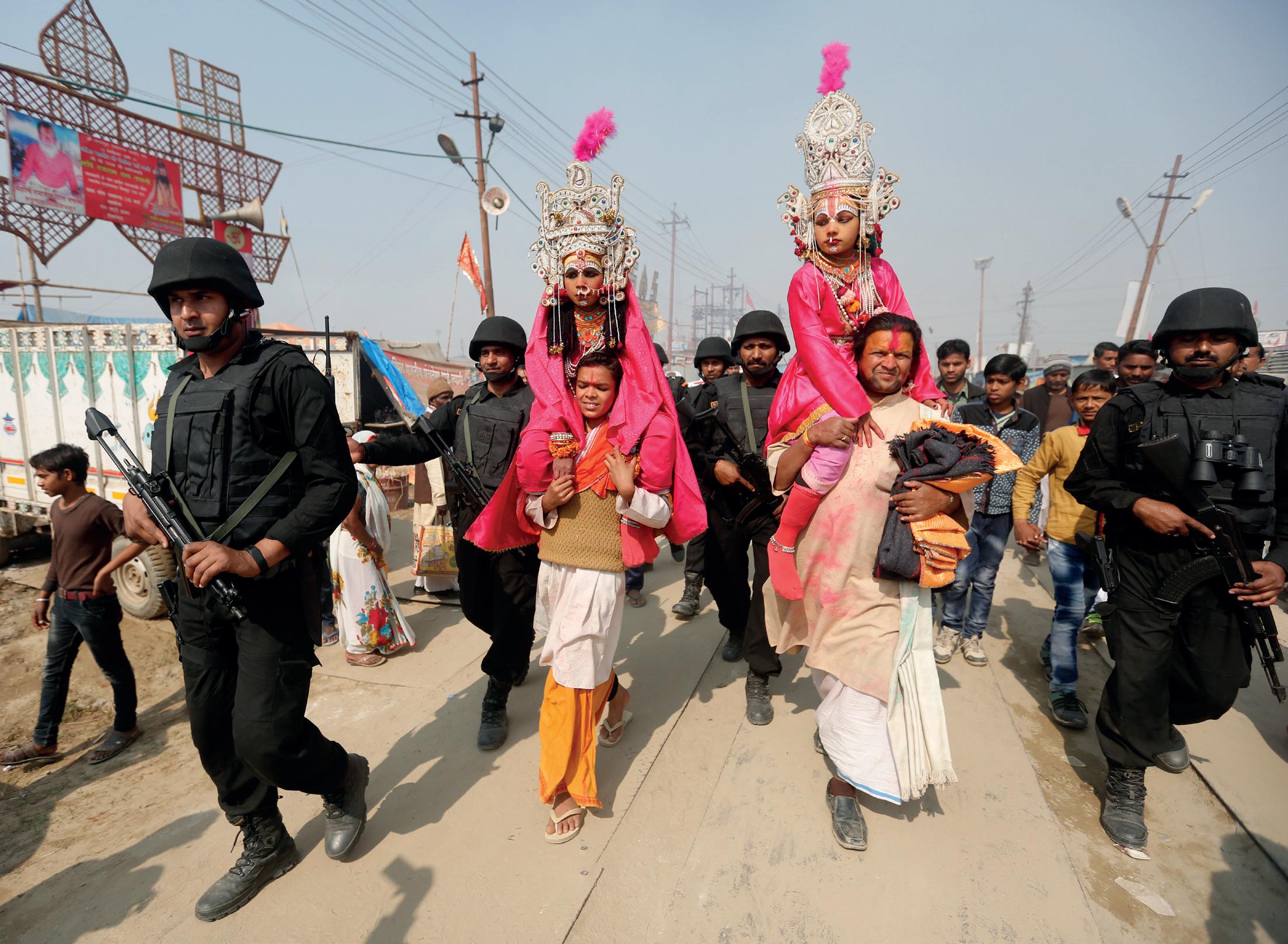
The armed student was overpowered by school staff and beaten up. He was later handed over to the police.
Police said the boy’s father is a financier and the licensed pistol used in the incident belonged to the father.
“School staff, students and teachers caught the accused while he was trying to escape and handed him over to police,” said a senior police officer.
There was panic in the school as five gunshots were fired by the assailant.
Police officials investigating the case said the assailant came to the school along with a friend on a motorcycle and headed straight for the Principal’s office.
School staff told the police that the student was angered over recent developments in the school which led to his expulsion.
The student had been rusticated as he had low attendance and used to pick fights with other students.
Indian Navy’s all-women sailing boat reaches Falkland Islands
The Indian Navy’s sailing boat INSV Tarini, with an all-women crew, on 22 January entered Port Stanley in the Falkland Islands, after crossing the Cape of Horn on January 18.
The boat is on its maiden voyage to circumnavigate the world. It is likely to depart Port Stanley on February 4.
The vessel and the crew experienced rough weather and stormy winds during the passage across the Pacific ocean that spanned 41 days, an official statement said.
This coupled with the extremely cold climatic conditions prevailing in the region, proved to be a daunting task for the Indian Navy crew. Winds in excess of 60 knots and waves upto 7 meters were experienced on this leg.
The indigenously-built INSV Tarini is a 56foot sailing vessel, which was inducted in the Indian Navy earlier this year, and showcases the ‘Make in India’ initiative.
The vessel is scheduled to return to Goa in April 2018, on completion of the voyage.
The expedition is being covered in five legs, with stopovers at four ports: Fremantle (Australia), Lyttleton (New Zealand), Port Stanley (Falklands), and Cape Town (South Africa).
Jaipur is perfect for the world’s most egalitarian book festival
BY WILLIAM DALRYMPLE
The Zee Jaipur Literature Festival, from 25 to 29 Jan, is a unique celebration of writing that has grown into something far bigger and more wonderful than anything we could ever have hoped when we first conceived of this Festival 11 years ago.
Jaipur remains one of the world’s most beautiful cities with remarkable literary and artistic traditions. It is the perfect setting for what we pride ourselves for, is the most democratic and egalitarian book festival in the world. And when we ask an author to come to Jaipur, he or she rarely says no, and this year we are proud to present a galaxy of the world’s greatest writers and thinkers, including constellations of Harvard, Yale, Oxbridge and St Stephen’s faculty as well as glittering cohorts of Booker, Pulitzer, Sahitya Akademi and Samuel Johnson winners. It’s like a superuniversity pitching its tents in Jaipur for five days and opening its doors to all comers. Anyone who wishes to see the draw should visit Jaipur Railway Station one evening and see all the book-loving students camping on the platforms. They may not be able to afford a hostel bed but they’ve found ways of getting to Jaipur from Tamil Nadu, Assam and Kashmir to supercharge their minds. Our audiences are the youngest, brightest and most enthusiastic of any festival I know.
This year, we have so much to offer that it is difficult to know where to begin. My co-director Namita Gokhale has written eloquently on the extraordinary list she has put together in all its multi-linguistic glory. I am equally proud of my international list which this year is, I believe, one of the most cerebral and intellectually-stimulating we’ve ever fielded.
We have gathered talent from across the globe - from Afghanistan to Patagonia and Tasmania to Turkey - to present writers of genius as diverse as the great literary critic Homi K Bhabha, travel writer Redmond O’Hanlon, terror expert Peter Bergen and the theoretical particle physicist Lisa Randall. We import some of the world’s most admired playwrights and novelists, including Tom Stoppard, Michael Ondaatje and Amy Tan. We delve deeply into areas of world literature we have so far failed to explore, notably the novelists and poets of Scandinavia, Syria and West Africa while returning to examine eternal classics such as the works of Conrad, Shakespeare and Virginia Woolf.
We will also explore a vast range of subjects from the history of headhunters to nature writing and the decline of pollinating insects; from the Russian Revolution to the perils of celebrity; study biographies from Lenin to Cleopatra, Bin Laden to Bruce Chatwin; we hear tales of book smuggling in Timbuktu and river journeys up the Congo; we look at the art of film and screenwriting and ask whether the page is mightier than the screen; we probe the reason for the Reformation, ask how to save the Ganges and uncover the secrets of al-Qaeda; we share the agonies of Syria and Palestine and the pleasures of Chinese philosophy and Sufism, as well as learning about dinosaurs and dark matter.
It’s going to be an incredible few days!
In first year, Trump firms up ties with India
As an upstart candidate aiming for the highest office in the United States, Donald Trump promised an election rally of Indians that they “will have a true friend in the White House” and “we are going to be best friends” with India.
In his first year as President, Trump has stuck to the promise, appointing for the first time an Indian-American, Nikki Haley, to the cabinet and giving India a “leadership role” in Washington’s global strategy across a broad geographic swath.
Prime Minister Narendra Modi, a man of humble origins, and Trump, a billionaire and a flamboyant reality TV personality, have struck an unlikely friendship.
During a White House visit in June, their hitherto phone friendship was sealed with hugs. “The relationship between India and the US has never been stronger, never been better,” Trump declared. “I am thrilled to salute you, Prime Minister Modi, and the Indian people for all you are accomplishing together.”
The ties have been growing strong under the previous three administrations of Presidents Bill Clinton, George W. Bush and Barack Obama, and Trump has moved it to a higher trajectory given its preoccupations with China and Afghanistan.
Global security has emerged as the centrepiece of Trump’s approach to India.
“We welcome India’s emergence as a leading global power and stronger strategic and defence partner,” said his national strategy unveiled last month, with a view to making New Delhi a counter-balance to Beijing in the Indo-Pacific region.
And Modi had said in October that IndiaUS ties were growing with a “great deal of speed”.
While Indian-Americans are overwhelmingly Democrat - a Pew Research Center survey said 65 percent support that party - Trump has given members of the community some top administration jobs.
But there have also been areas of friction with India, with immigration as the most contentious. The Trump administration - and his campaign - have signalled plans to fundamentally change the H-1B visa programme for professionals that overwhelmingly benefits Indians. But so far it hasn’t, although it has tightened the scrutiny of the visas.
It also backed off a threat to make H1-B visa holders in line for Green Cards return home while they wait out the years for their permanent residencies.
On the economic front, Trump’s “America First” and Modi’s “Make in India” are likely to come into conflict as each seek manufacturing, jobs and investments in their own economies, and Trump threatening nations with which the US has a trade deficit.
The five Indian Americans in the Congress opposed Trump on most issues. The first Senator of Indian-American ancestry, Democrat Kamala Harris, has emerged as one of the fiercest critics of Trump. She is pushing the Senator Judiciary Committee enquiry into Trump campaign’s alleged links to Russia and has called for his resignation over charges of sexual harassment.
But Trump’s India policy “transcends partisanship” and the party supports his initiatives to strengthen it further, according to Democratic Congressman Raja Krishnamoorthi.
An important area of convergence for the two countries is the fight against terrorism. “Both our nations have been struck by the evils of terrorism and we are both determined to destroy terrorist organisations and the radical ideology that drives them,” Trump said during Modi’s visit to the White House in June.
Adopted Indian child now a Swiss parliamentarian
His biological mother Anasuiya could never have imagined that Niklaus-Samuel Gugger, whom she abandoned in a hospital 48 years ago just after his birth, would be the first Indian to be elected to the Swiss parliament.
Born in CSI Lombard Memorial Hospital, run by Basel Mission, in Karnataka’s Udupi town, on May 1, 1970, Niklaus was adopted by a Swiss couple within a week of his abandonment.
Niklaus’s new parents - Fritz and Elizbeth - took him to Kerala when he was just 15 days old and they lived there for around four years before moving to their native place in Switzerland. There, Niklaus had to drive trucks and work as a gardener as his adoptive parents were not rich enough to finance his higher studies.
From the sidelines of the first PIOParliamentarian Conference here last week, Niklaus said, “My mother, Anasuiya, handed me over to Dr ED Pflugfelder - now deceased - just after my birth, requesting him to give me to a couple who could rear me in a better way and help me make a good career.”
Pflugfelder, in turn, contacted the Gugger couple and the rest, as they say, is history.
Niklaus, better known as Nik, was among 143 People of Indian Origin (PIO) parliamentarians from 24 countries who took part in the conference organised by the Ministry of External Affairs to engage the diaspora as part of its diplomatic outreach.
For Niklaus, coming to India was an emotional moment.
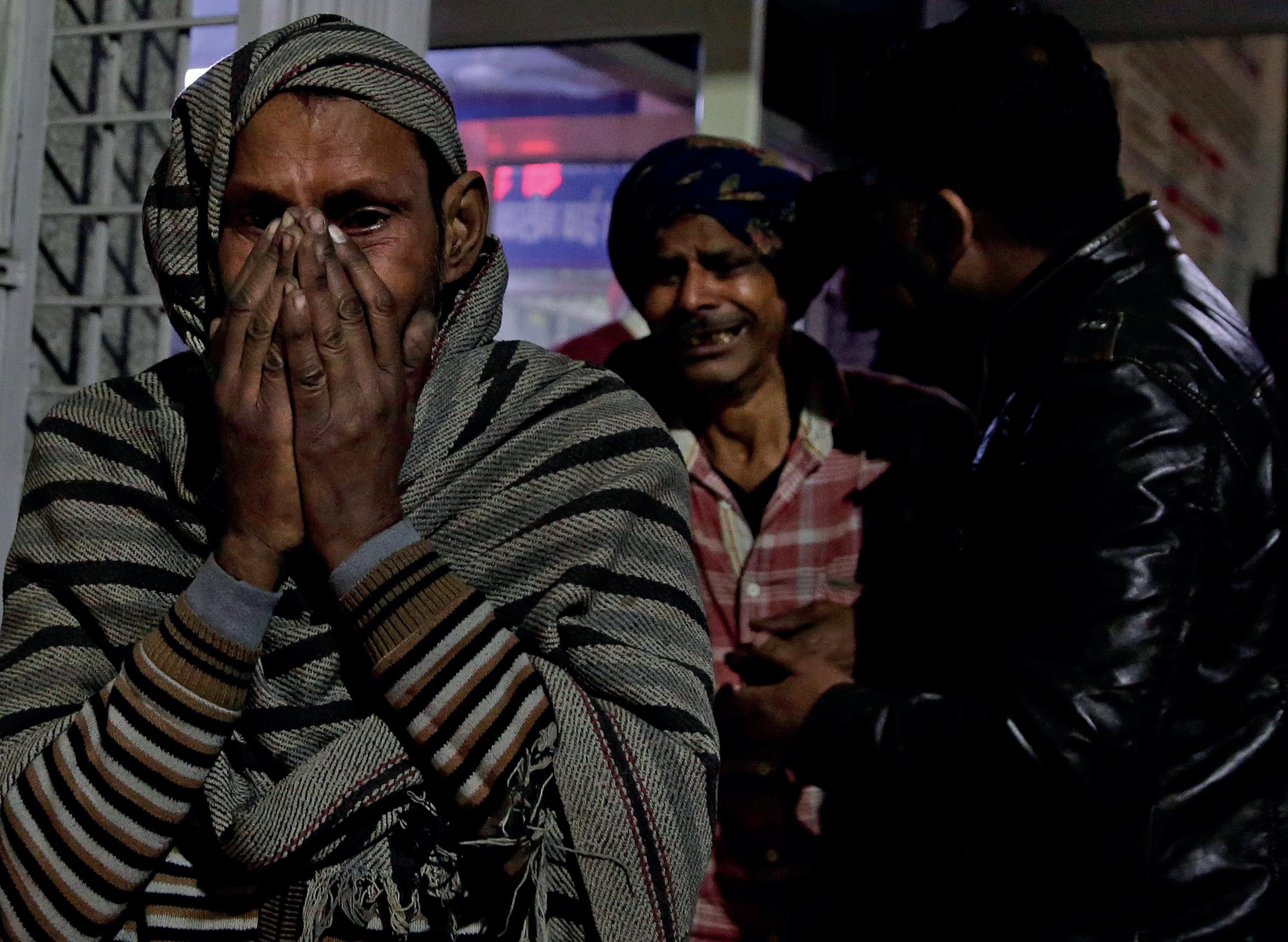
Narrating his journey from the Karnataka hospital to the Swiss parliament, Niklaus said he spent initial four years of his life in Thalassery in Kerala where his new mother Elizabeth worked as a teacher of German and English and father Fritz was a tool maker in Nattur Technical Training Foundation (NTTF).
“Later, my new parents moved to Switzerland where I worked as a truck driver, gardener and mechanic to pay for my higher studies. I had to go through this because my parents were not so rich as to bear the burden of my studies. They gave me food and clothes.
“They trained me in other things,” Niklaus added.
Having finished my studies, I indulged in social work simultaneously with my other work to earn my livelihood.
In 2002, he was elected town councillor from Winterthur city northeast of Zurich near the German border.
“And subsequently, in November 2017, I was elected as a member of Switzerland parliament on the ticket of the Evangelical People’s Party - a minority party. I am the first Indian to be elected as an MP in Switzerland’s parliament.”
Niklaus added he would be the only Indian in the Swiss parliament for at least the next decade as there was no other active Indianorigin politician in the country.
He has also had a long association with Kerala’s NTTF institute, which lends a helping hand to students pursuing their technical education in India and Switzerland. Niklaus thanked his biological mother for his success and said he named his daughter Anasuia to keep alive her memory because he has not been able to track her down. IANS









